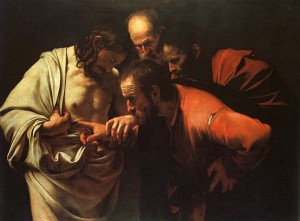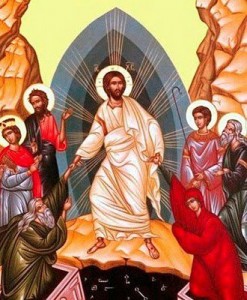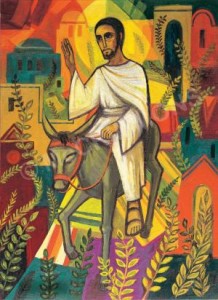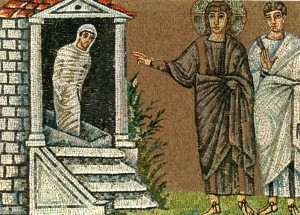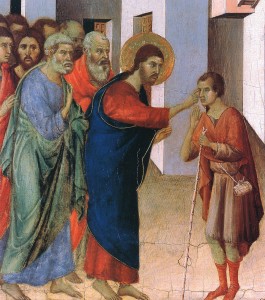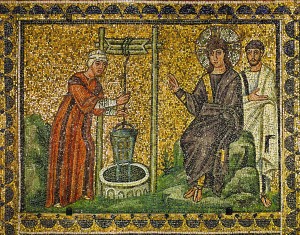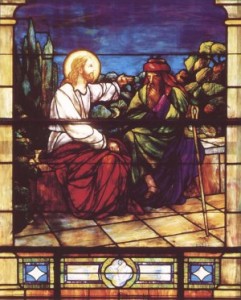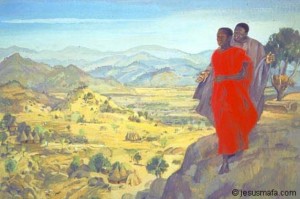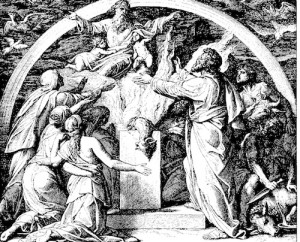Thoughts on Today’s Lessons for Sunday, April 27, 2014
First Reading: Acts 2:14a,22-32Christ is risen, and we move forward with joy into the 50 days of Eastertide. Today’s readings offer us insights into the meaning of resurrection in our lives. Throughout the Easter season, we replace our usual Old Testament reading with selections from Acts, the apostle Luke’s stories of the early church and how it grew. Listen today as Peter, touched by the Holy Spirit, declares the resurrected Christ as Messiah, fulfilling the prophecy attributed to King David in Psalm 16, and assuring us of our hope for eternal life through Jesus.
Psalm: Psalm 16
Here is the full Psalm from which Peter quoted in his sermon to the people of Jerusalem. If you’re paying close attention, you will notice that the words are similar but different here. That’s because Peter was using the Greek bible (called the Septuagint) that was standard in his time; today’s Psalm is translated from the original Hebrew bible. It can be fascinating to explore the similarities and differences, but both versions, of course, convey the same promise: God teaches us, God watches over us; God protects us, and God gives us joy and “pleasures for evermore.”
Second Reading: 1 Peter 1:3-9
Written in Peter’s name by later followers, the two short epistles of Peter offer us fascinating glimpses into the developing ideas of Christ, resurrection and hope for salvation in the early church in Asia Minor (modern Turkey) around the end of the first century. Perhaps written to reassure a persecuted community suffering “various trials,” the author reminds us that through Christ’s resurrection and life, God offers us the joy of a lasting inheritance and salvation earned through our faith.
Gospel: John 20:19-31
The risen Jesus suddenly appears among the apostles in a locked room! He shows his rejoicing friends his wounds, then sends them into the world in peace, with the breath of the Holy Spirit, to declare the Good News. Then comes Thomas, who doubted that Jesus had truly risen until he could touch the wounds. They are real: He is no ghostly spirit! Jesus blesses those who believe through faith, reminding us that through our belief we have life in his name.

